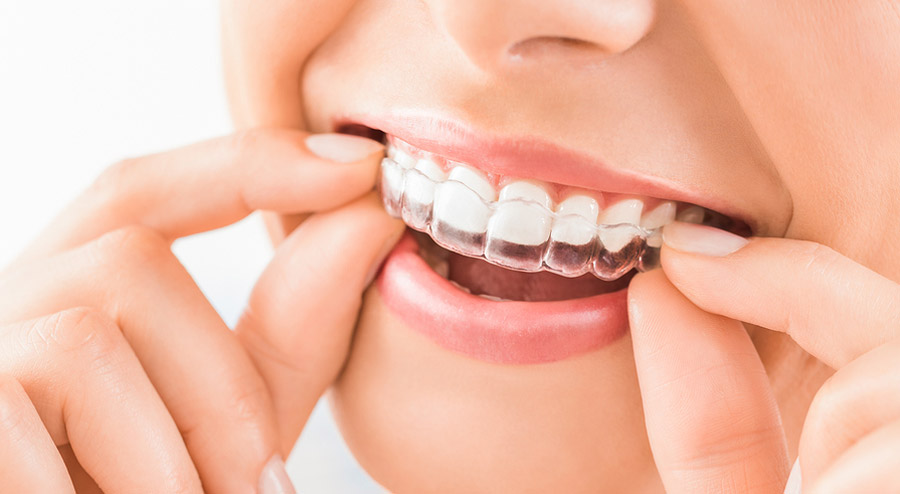Helping Thousands of People Each Year Find Dental Services
- Emergency dental surgery, cavities, general dental care.
- Find immediate help, no insurance required.
- Get relief from chipped, cracked or lost teeth, abscesses or toothaches.
Transparent Teeth Info and FAQs

Teeth usually become transparent or translucent due to loss of enamel. Enamel is the hard outer surface of our teeth and is opaque when at its optimum thickness. In fact, the layer underneath the enamel is naturally yellow and can be dark, but you usually cannot tell due to the thick opacity of the enamel. Therefore, if your teeth have got to the point where they are transparent or translucent, this means that a large amount of enamel has been worn away.
Enamel requires a good diet full of the right amount of minerals and the proper oral care in order to maintain its color and thickness. Not taking the right care of your teeth and subjecting them too acidic foods and beverages can prematurely wear away the enamel. Sweets can also be detrimental to your teeth because the carbohydrates in the sugar feed the bacteria that live in your mouth. Once the bacteria start feeding on these carbs they emit their own acid that can then sit on your teeth and erode the enamel.
In some cases, developmental or genetic conditions can cause translucent teeth. Improper nutrition during the years when adult teeth are forming, from around age 6 to 12, can prevent them from fully developing and can reduce the amount of enamel that teeth have to begin with once they erupt through the gums. Those who have this condition need to take special care to ensure that they retain the enamel they do have since they do not have as much to lose. Other conditions like Celiac disease and enamel hypoplasia cause the enamel to not properly develop and can even result in rapid mineral loss from the teeth.
There can be many reasons for transparent teeth, so a visit to the dentist is essential to get the situation diagnosed and to begin a treatment plan.
Q: Why are my teeth becoming transparent?
A: The cause of transparent teeth is usually a loss of enamel. Eating or drinking acidic substances on a regular basis, certain illnesses like Celiac disease, or even brushing too hard on a regular basis can all contribute to the premature wearing down of enamel. Those with conditions that result in regular contact between the teeth and stomach acid, like GERD, bulimia, or morning sickness, can also be at risk for accelerated enamel erosion. You should consult with your dentist to get a proper evaluation.
Q: What can I do to stop enamel loss?
A: To stop enamel loss simply cease the activities that led to loss in the first place, if possible. While diseases cannot be prevented, you can stop consuming acidic foods and drinks and modify behaviors as directed by your dentist. There are certain brands of toothpaste and mouthwash that can help provide the minerals that your teeth need to stay strong and protect what you have left.
Q: Can I reverse enamel loss?
A: Unfortunately, enamel cannot be regrown or built back up. Damage to enamel is permanent, which is why it is so important to protect your teeth and prevent enamel from being lost in the first place.
Q: What are the possible side effects of enamel loss?
A: When the enamel of the tooth is thinned, it exposes the underlying layer called dentin. The dentin is responsible for transferring sensation from the enamel to the pulp and nerve at the heart of the tooth. If the dentin is unprotected, then sensations are amplified and things like cold and sweet can be interpreted as pain. Weakened enamel is also more likely to develop cavities, and these cavities can become deep and serious much more quickly since there is less enamel to get through.
Q: Does this mean my teeth are not as strong?
A: It depends on the severity of the enamel erosion. If it has just started and is more of a cosmetic issue then you should not have to worry about structural damage, but only your dentist will be able to determine the full extent of the damage. If the enamel erosion is serious then the dentist will likely recommend a tooth cover like a veneer or crown to protect it.
Q: What can I do to improve the look of my teeth?
A: Veneers are often recommended if the teeth have been damaged and need protection, but they can also be used if the issue is simply cosmetic. Veneers are a thin porcelain or resin covering that are cemented to the front surface of teeth and mimic the natural look of teeth. They are used for several cosmetic purposes, such as whitening or covering chipped teeth. In most cases, the adhesion surface must first be ground down to accommodate for the thickness of the veneer, but if your enamel has been eroded to the point of transparency or translucency then this might not be necessary.
Transparent teeth might be off-putting or unsettling, especially if you do not know what is causing it. If you have noticed your teeth becoming transparent you should bring it up to your dentist. Hopefully, you are already visiting them regularly, in which case they may notice and flag the issue before you even do. Enamel loss is a serious situation and can only be prevented, not reversed. While there are some treatments available for those who have lost too much enamel and developed sensitivity or other complications, taking proper care of your teeth to begin with is always preferable to expensive work.




